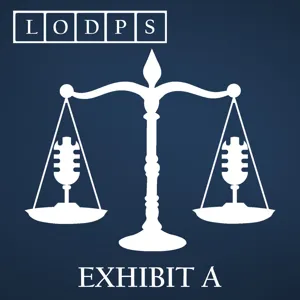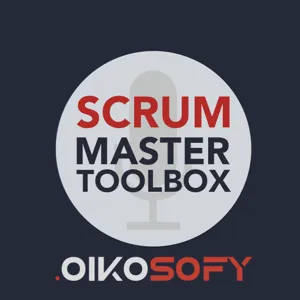Podcast Summary
The importance of self-awareness for effective leadership: Leaders who are self-aware have a better understanding of their own behaviors and how they impact others, allowing them to learn from mistakes and improve leadership skills.
Self-awareness is a crucial aspect of effective leadership. John Burt, a master certified executive leadership coach, emphasized that leaders who are more self-aware have a better understanding of their own behaviors and how they impact others. This self-reflection helps leaders learn from their mistakes and improve their leadership skills. Unlike some leaders who may blame others when things go wrong, self-aware leaders use introspection to identify areas for growth. Burt's background in behavioral science has been invaluable in his career as a leadership coach, as it has given him a deep understanding of human motivations and organizational behavior. Before becoming a coach, Burt held management positions at companies like General Dynamics, Ernst and Young, and IBM. He retired from IBM but continues to help leaders at all levels improve their self-awareness and leadership capabilities.
Learning from Effective Leaders: Observing good leaders and learning from their behaviors and management styles can help individuals develop their leadership skills. Creating a positive organizational culture is essential for attracting, retaining talent, and ensuring success when leaders are not directly present.
Leadership is a continuous learning process and it's essential for running a business, especially in larger organizations where multiple layers of leadership exist. Observing good leaders and learning from their behaviors and management styles can help individuals develop their leadership skills. However, not all leaders are effective, and creating a positive organizational culture is crucial for attracting, retaining talent, and ensuring success when leaders are not directly present. Management skills involve managing processes, while leadership skills focus on managing people and inspiring them. It's important to remember that everyone has some degree of leadership potential, but effective leadership requires constant improvement.
Effective leadership involves adapting and blending various traits: Leaders should develop skills across various traits to navigate diverse business scenarios and connect better with their teams by being vulnerable, empathetic, and open.
Effective leadership involves being adaptable and having a blend of various leadership traits. While we all possess multiple traits, one or two typically stand out as our go-to style. Different leadership styles are suitable for different situations and organizations. For instance, a transformative leader might excel in a turnaround situation, while a steady-state leader may thrive in a stable business environment. However, it's essential for leaders to develop skills across various traits to navigate diverse business scenarios. A common misconception about leadership is the need to be constantly in control and have all the answers. Today's successful leaders are more vulnerable, empathetic, and open to showing their softer side, which helps them connect better with their teams.
Building Strong Teams and Fostering Positive Culture: Hire and nurture capable team members, create a motivating environment, commit to a common purpose, and maintain a strong culture for optimal team performance and trust.
Effective teamwork and a strong company culture are crucial for success in any organization. The right people, working together in harmony, can achieve more than what any individual could accomplish alone. Leaders play a significant role in building strong teams and fostering a positive culture. They must hire and nurture capable team members, create an environment that motivates and encourages risk-taking, and commit to a common purpose. Even in the current remote work era, maintaining a strong company culture is essential, as it drives performance and fosters trust among team members. Jim Collins, in his books "Good to Great" and "Built to Last," emphasizes the importance of hiring the right people, maintaining a strong culture, and focusing on core values.
Intentional communication for remote culture: Leaders must communicate personal values and practice them to preserve remote culture, finding open and willing clients for coaching is crucial.
In today's remote or hybrid work environment, maintaining organizational culture and values requires intentional communication and definition from leaders. While in-person interactions used to allow new hires to learn culture through observation, leaders must now be overt about sharing their values and instilling them in the organization. Leaders should start by communicating their personal values and then continue to reinforce and practice them. Finding the right clients for coaching is essential, as they must be open to learning and willing to implement new practices to develop as leaders. Overall, effective communication and intentionality are key to preserving and promoting organizational culture in a remote or hybrid work environment.
European Leadership vs. American Leadership: European leadership emphasizes collaboration, consensus building, and consideration for the organization, employees, and society. American leadership focuses on individual achievement and decisiveness.
Effective leadership and personal growth require self-awareness. Not everyone benefits from leadership training, and it's essential to evaluate if someone is open to it. The speaker shared their experience working in Europe, where they noticed a significant difference in leadership styles. European corporations prioritize collaboration, consensus building, and consideration of the organization, employees, and society as a whole. Decision-making in Europe is more harmonious, and layoffs are handled with more care to maintain social stability. After working in Europe for ten years, the speaker appreciated the cultural differences but acknowledged the challenges of adapting. Ultimately, both models have their merits, and understanding the unique aspects of each can lead to more effective leadership.
Valuing Cultural Differences in Teams: Effective collaboration requires understanding and valuing cultural differences among team members. Self-awareness and self-assessment tools help form the foundation for successful coaching engagements.
Understanding and valuing cultural differences among team members is crucial for effective collaboration and achieving exceptional results. This was a valuable lesson learned by the speaker during a project involving 19 different countries and cultures. When starting a new coaching relationship, the process begins with a discovery session where the coach learns about the client's background, motivations, and goals. Self-assessment tools are also used to help individuals gain insight into their primary traits and strengths. This self-awareness forms the foundation for a successful coaching engagement.
Exploring the Impact of Leadership Coaching: Effective leadership coaching can foster personal and professional growth through regular sessions, observing clients in their work environment, and offering additional services.
Effective leadership coaching can significantly impact personal and professional growth. John Burt, a leadership coach, shares his approach to coaching, which includes regular sessions, observing clients in their work environment, and offering various services such as team coaching, culture consulting, and speaking engagements. Burt also mentioned his involvement with the Pasadena Chamber of Commerce and an upcoming economic summit, where attendees can expect insights on the state of the economy from global, national, and regional perspectives. Overall, Burt emphasizes the importance of continuous learning and improvement in both personal and professional settings. To learn more about John Burt and his coaching services, visit his website at johnbertleadership.com.
Learn About Artificial Intelligence at Pasadena Chamber Event: Join the Pasadena Chamber for an informative event on AI, featuring expert insights, debunking myths, and practical uses for businesses. Registration and details on the Chamber website.
The Pasadena Chamber of Commerce is hosting an event on Artificial Intelligence (AI) at the Altadena Country Club, and it's open to both members and non-members. The discussion will cover the basics of AI, its uses, myths, and facts, and how businesses can effectively utilize this powerful tool. The event will feature expert insights and is expected to alleviate any fears or uncertainties about AI. The cost is $75 per person, and parking is free. The chamber is co-hosting this event with the city of Pasadena, aiming to benefit local businesses and citizens. Attendees can expect an engaging and informative presentation, as last year's event, which focused on the economy, was well-received. Given the relevance and potential impact of AI on businesses and management, this event is a must-attend for those seeking to stay informed and make informed decisions. To secure your spot, visit the Chamber website and register. Don't miss this opportunity to expand your knowledge and join your peers in this fascinating exploration of Artificial Intelligence.




